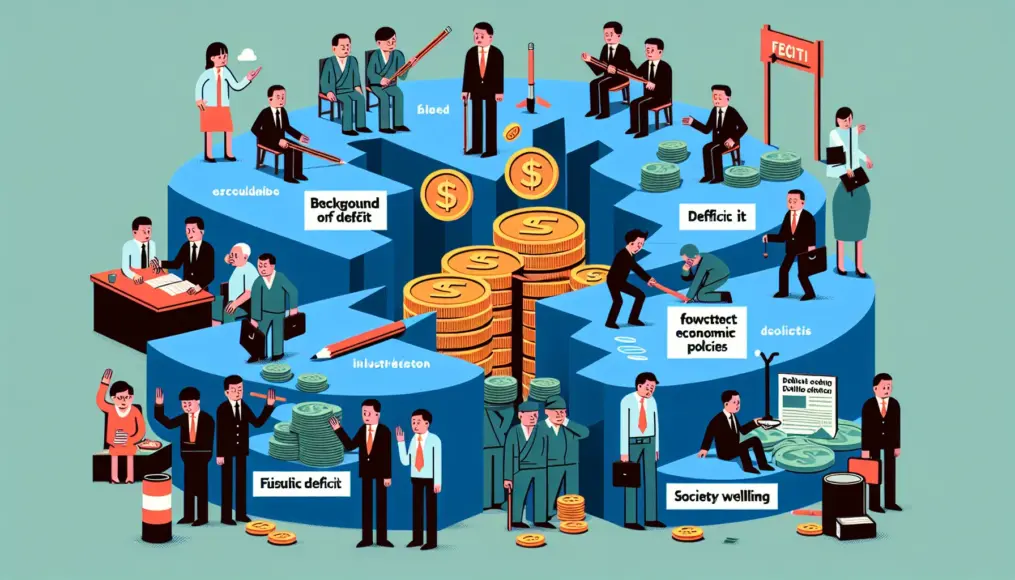Understanding Defense Spending: A Closer Look
While you may hear the term “defense spending” frequently, many people might not fully grasp its implications. Defense spending refers to the funding necessary to ensure a nation’s security, and understanding how it is allocated and its underlying context is crucial, as it can significantly impact our daily lives. In this article, we’ll delve into the basic definition of defense spending, its historical evolution, and its effects on politics and international relations.
By exploring how defense spending intersects with our lives, we can better understand its relationship with national security, the economy, and social welfare. So, let’s take a moment to consider what defense spending is and why it matters.
- A detailed explanation of the definition and breakdown of defense spending
- A look back at historical trends and the impact of the Cold War
- An exploration of political influences and effects on citizens’ lives
Understanding Defense Spending and Its Breakdown
Defense spending refers to the funds that a nation allocates to maintain its security and protect its citizens. This encompasses a wide range of costs, including the maintenance, operation, training, and procurement of military capabilities. In recent years, as international dynamics shift and regional tensions rise, the importance of defense spending has come to the forefront, significantly influencing national strategies and policies. In this section, we’ll take a closer look at the fundamental definition of defense spending and its specific components.
What Is Defense Spending?
Defense spending is a broad concept that includes all expenditures related to a country’s defense. Specifically, it encompasses military personnel costs, equipment procurement, training expenses, and even costs associated with international peacekeeping operations. These expenditures are essential for ensuring national security, and their nature and amounts have evolved over time.
- Defense spending is essential for national security.
- It includes military personnel costs and equipment purchases.
- Changes in international conditions influence defense spending.
Breakdown of the Budget
The budget for defense spending is divided into various categories, with allocations made according to specific needs. For instance, purchasing equipment requires a significant portion of the budget, and personnel costs for the operation and maintenance of the military are also crucial. Additionally, expenses related to training and exercises cannot be overlooked. Thus, defense spending is not merely a figure; it represents a vital component that supports concrete activities aimed at safeguarding the nation’s security.
- The defense budget is divided into numerous categories.
- A substantial budget is necessary for equipment procurement.
- Training and exercises are also critical components of defense spending.
Historical Trends in Defense Spending
Defense spending forms the backbone of a nation’s security, and its trajectory significantly shifts according to historical contexts and international dynamics. In post-war Japan, for instance, defense expenditures evolved alongside economic growth. This section delves into the changes in defense spending since World War II and the influences during the Cold War era. Understanding the history of defense spending can provide deeper insights into current policies and budgets.
Changes in Post-War Defense Spending
After World War II, Japan gradually increased its defense budget, albeit under the constraints of its pacifist constitution. In the 1950s, defense spending surged due to the Korean War, and it continued to rise in tandem with the nation’s economic expansion. The 1970s saw further increases influenced by the Cold War. Thus, Japan’s defense budget has fluctuated in response to external factors.
- Post-war Japan saw an increase in defense spending under a pacifist constitution.
- The Korean War acted as a catalyst for rising defense expenditures.
- Defense spending continued to grow alongside economic development.
The Impact of the Cold War Era
During the Cold War, the intensifying East-West rivalry altered perceptions of defense spending. During this period, Japan strengthened its alliance with the United States and re-evaluated the necessity for national defense. Defense spending evolved into an essential component not only for military expenditures but also for participation in international peacekeeping missions and contributing to regional stability. Even after the end of the Cold War, its influences linger, leading to a diversification in the uses and purposes of defense spending.
- The Cold War era brought changes in defense spending due to East-West tensions.
- Strengthened alliances with the U.S. led to a renewed recognition of national defense needs.
- The purposes of defense spending diversified, impacting international activities.
Political Influence and Defense Spending
Defense spending is a crucial aspect of ensuring a nation’s security, but it is also significantly influenced by the political landscape and government policies. Particularly, defense budgets can fluctuate based on domestic and international situations, as well as the direction of the current administration, leading to direct impacts on citizens’ lives and the economy. In this section, we will explore how government policies are reflected in defense spending and the effects of international relations on these budgets.
Government Policies and Defense Spending
Governments set defense budgets to safeguard national security, but the amount and allocation can vary based on their policies. For instance, administrations that promote pacifism tend to keep defense spending in check, while those in regions facing heightened tensions may increase their military budgets. Additionally, the introduction of new technologies and equipment can lead to shifts in budget allocations. These policy changes hold significant implications for the public.
- Defense spending fluctuates with government policies
- Pacifist administrations tend to restrain defense budgets
- Changes in budget allocation due to the introduction of new technologies
The Impact of International Relations
International dynamics have a substantial influence on defense spending, particularly when it comes to relationships with neighboring countries and rising global tensions. For example, if military capabilities in surrounding nations are strengthened, there may be a pressing need to boost defense budgets in response. Furthermore, international alliances also play a role in defense spending; in Japan, which has strong ties to the United States, shifts in U.S. policy can directly affect Japan’s defense budget. Thus, international relations are an indispensable factor in determining defense expenditures.
- International dynamics greatly influence defense spending
- Increased military capabilities of neighboring countries lead to higher defense budgets
- Relations with the U.S. impact defense spending fluctuations
The Impact of Defense Spending on Citizens’ Lives
Defense spending is a critical component of national security, but its effects extend into the daily lives of citizens. Particularly in relation to the economy and social welfare, changes in budget allocation can have direct consequences for the public. In this section, we will explore how defense spending influences citizens’ lives, examining its economic impact and its relationship with social welfare.
Economic Impact
An increase in defense spending directly affects the nation’s economy. When funding for defense-related expenditures rises, it can invigorate the defense industry and lead to job creation. However, this boost may come at the expense of other public services and social welfare programs. The allocation of a limited budget to various priorities can influence the overall economy, which in turn affects citizens’ standard of living.
- Increased defense spending affects the economy
- Expected revitalization of the defense industry and job creation
- Consideration of impacts on other public services is necessary
Relationship with Social Welfare
Defense spending and social welfare are closely intertwined in terms of budget allocation. When defense spending rises, it can lead to cuts in social welfare funding, potentially impacting citizens’ well-being. As we face an aging population, the demand for enhanced medical and welfare services grows, making it crucial to consider how increases in defense spending affect social welfare. Striking a balance in these areas is essential for maintaining the quality of life for citizens.
- Defense spending and social welfare are related through budget allocation
- Increases in defense spending may affect social welfare funding
- There is a growing need for enhanced welfare services in an aging society
Conclusion
Defense spending is essential for maintaining national security, and its nature and amount have evolved over time. By examining the trends in defense spending since World War II, the impact of the Cold War, and the influence of government policies and international relations, we can see how these factors significantly affect our daily lives. Understanding how increases in defense spending may impact the economy and social welfare is also crucial. Given these considerations, it is important to rethink the implications of defense spending.
Discussions around defense budgets will undoubtedly continue, but it’s vital to discern how these decisions will affect citizens’ lives. By deepening our knowledge and raising awareness about this topic, each of us can contribute to building a better future.
- Defense spending is necessary for national security.
- Political dynamics and international relations greatly influence defense budgets.
- Increases in defense spending have direct implications for the economy and social welfare.
We’d love to hear your thoughts and opinions on this topic, so please feel free to share them in the comments!



Comment